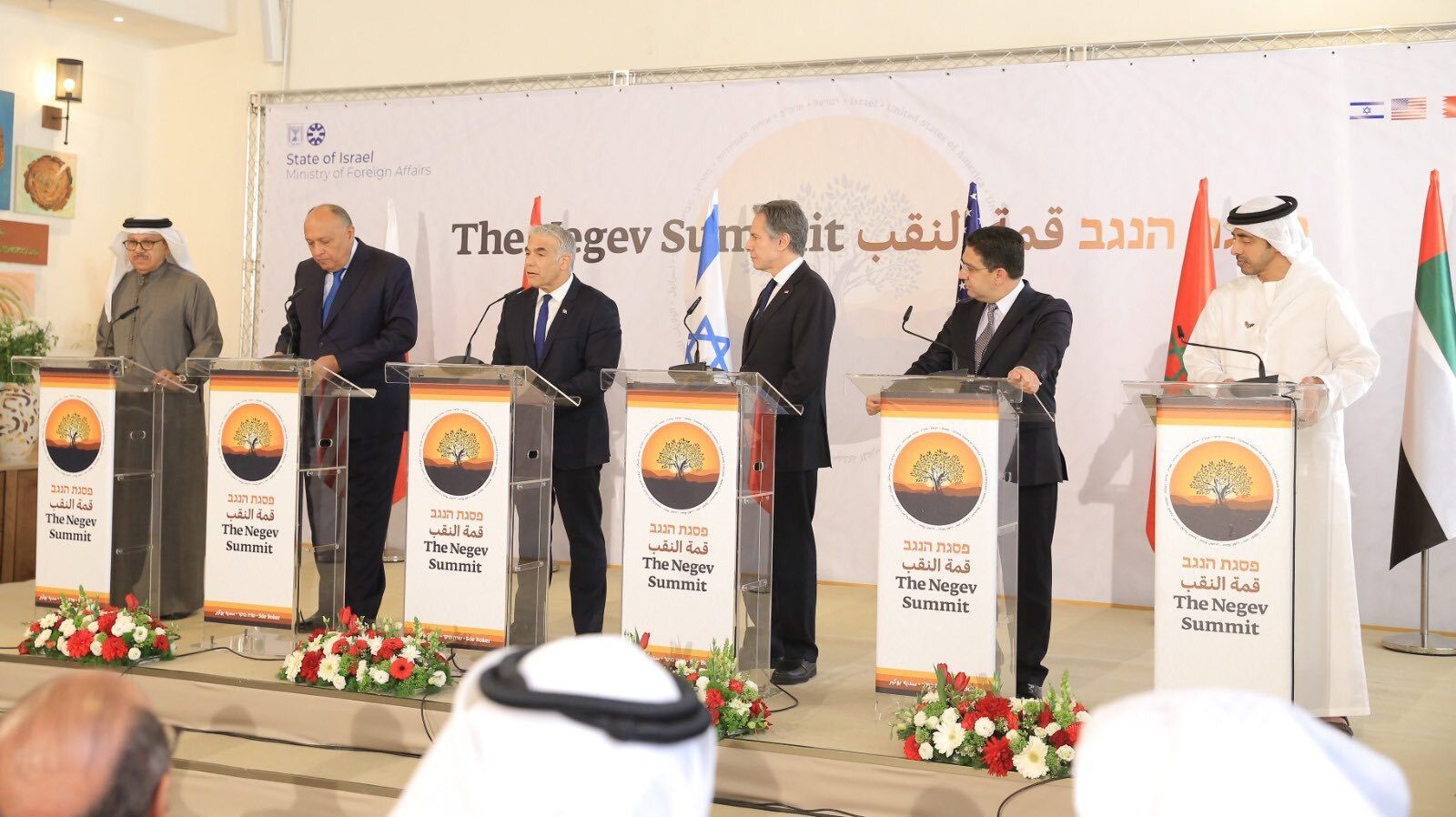3 Summits Laying Down the Groundwork for the Future of the Middle East
Al-Ittihad, UAE, April 6
Three monumental meetings took place successively at an important historical moment for the region, when geopolitical shifts are unfolding around us. The first, the Sharm El-Sheikh Summit, was attended by Egyptian President Abdel Fattah el-Sisi, Abu Dhabi Crown Prince Mohamed bin Zayed Al Nahyan, and Israeli Prime Minister Naftali Bennett. It symbolized the launch of a new Arab-Israeli partnership – and perhaps an alliance – that will unify the region for years to come. The next meeting was the Aqaba summit, which included the Egyptian president, the crown prince of Abu Dhabi, King Abdullah of Jordan, and Iraqi Prime Minister Mustafa Al-Kadhimi. This four-way Arab forum convened to coordinate positions between its four members during a very sensitive time. The third meeting was the Negev Summit, which brought together the foreign ministers of four countries – namely the UAE, Egypt, Morocco, and Bahrain – with the foreign ministers of Israel and the United States. This meeting was described as historic because it set up a “new architecture” for the Middle East. Yair Lapid, Israel’s foreign minister, said, “We are writing history here and establishing a new architecture based on progress, technology, religious tolerance, and security and intelligence cooperation to deter common enemies. This forum will expand to form an unprecedented security alliance and partnership, as well as joint military, economic, and strategic relations.” Similarly, US Secretary of State Anthony Blinken said, “The gains achieved by the Abraham Accords are not a substitute for making progress between the Palestinians and Israel.” The current situation won’t be sustainable for long given the dramatic changes witnessed in the region and the negative American position on almost all vital interests of Gulf states. Washington has sacrificed its relationship with the moderate Arab world in favor of Iran and seems determined to funnel millions of dollars to the hands of the mullahs, who will continue funding their militias and proxies throughout the Middle East. It seems as if a new nuclear agreement will be signed in Vienna, and that the only issue standing in the way of sealing the deal is the removal of the Islamic Revolutionary Guard Corps from the US terrorist list. Arab diplomatic relations with Israel are of Iran’s own making, when it turned the Gulf region into an insecure environment. Since the Khomeini revolution in 1979, Gulf states have sought to find common ground with Iran. However, Iran rejected diplomacy time and again and resorted to violence. If Iran were a peaceful country, the situation would be different and safe in the Gulf region, and the Iranian people themselves would enjoy prosperity and growth. –Ahmed Al-Hosani (translated by Asaf Zilberfarb)
Give the gift of hope
We practice what we preach:
accurate, fearless journalism. But we can't do it alone.
- On the ground in Gaza, Syria, Israel, Egypt, Pakistan, and more
- Our program trained more than 100 journalists
- Calling out fake news and reporting real facts
- On the ground in Gaza, Syria, Israel, Egypt, Pakistan, and more
- Our program trained more than 100 journalists
- Calling out fake news and reporting real facts



